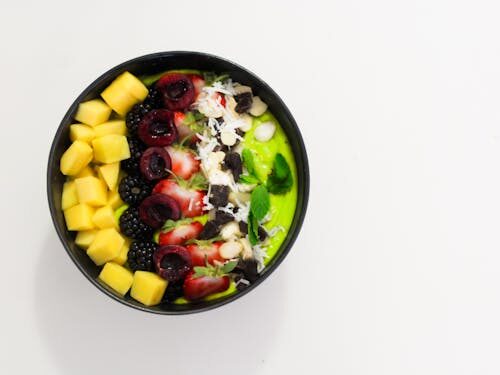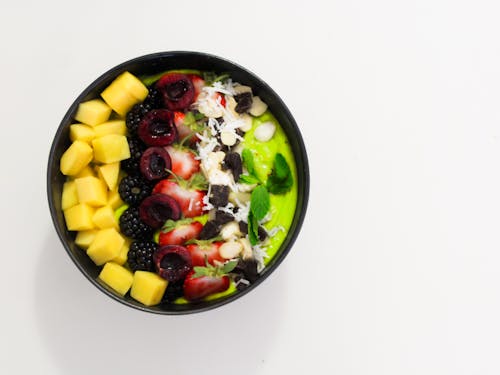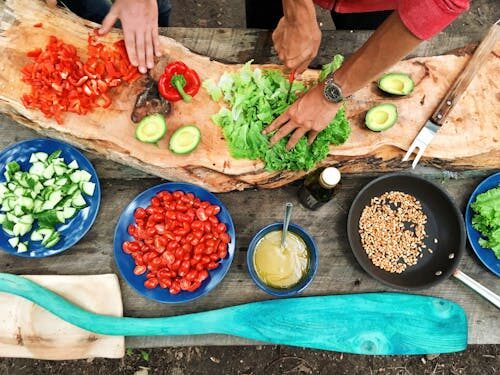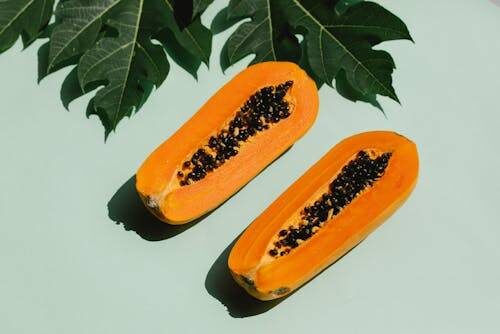Let’s be honest — we don’t always treat our eyes the way they deserve. From binge-watching late-night shows to scrolling endlessly through social media, our vision takes a lot. The problem? We often forget how crucial eye health really is… until something starts to go wrong.
The good news? You don’t need to wait for a wake-up call. In fact, one of the most powerful things you can do to take care of your eyes is ridiculously simple — eat better. There are certain foods for healthy eyes that can make a huge difference, especially when you work them into your diet consistently.
In this article, we’re diving into 10 superfoods that not only protect your vision but actually help improve it over time. And don’t worry — this isn’t some boring list of impossible-to-find ingredients. These are everyday foods you’ll actually enjoy eating.
Table of Contents
1. Carrots: Your Grandma Was Right
Carrots are like the poster child for eye health, and for good reason. They’re loaded with beta-carotene, which your body turns into vitamin A — the exact nutrient your eyes need to see in low light and stay moisturized.
Try this: Snack on baby carrots with a bit of peanut butter, or toss them into a stir-fry for extra crunch.
2. Spinach: Green Goodness Your Eyes Will Love
Spinach is basically eye food royalty. Thanks to lutein and zeaxanthin, two plant-based antioxidants found in the retina, this leafy green helps block harmful blue light and keeps your vision sharp as you age.
Easy tip: Throw a handful into your smoothie or layer it in your sandwich — you won’t even taste it.
3. Eggs: Tiny Packages of Eye-Nourishing Nutrients
Here’s something you might not know: eggs (especially the yolks) are packed with the same antioxidants as spinach — plus zinc, which helps your body absorb them more efficiently.
Make it simple: A couple of boiled eggs for breakfast or lunch can go a long way toward better vision.
4. Salmon: A Tasty Way to Fight Dry Eyes
Dry, itchy eyes? Omega-3s in salmon can help with that. These healthy fats support tear production and reduce inflammation in the eye — making them a must for anyone who spends long hours in front of screens.
Pro tip: Aim for two servings a week. Grill it, bake it, or even add it to a salad.
5. Sweet Potatoes: More Than Just Comfort Food
Not only are sweet potatoes delicious and filling, they’re also packed with beta-carotene and vitamin E — two nutrients that help protect your eyes from the kind of cell damage that leads to vision loss.
Quick idea: Cube and roast them with a bit of olive oil and rosemary for a side dish you’ll crave.
6. Blueberries: Tiny But Mighty
These little guys are packed with anthocyanins — antioxidants that support blood flow to the eyes and can even help with night vision and eye fatigue. If you’re staring at screens all day, this one’s for you.
Easy fix: Add a handful to your morning oats, or keep a small bowl in the fridge for snacking.
7. Broccoli: Vision Defense in a Floret
Broccoli doesn’t always get the love it deserves, but when it comes to eye health, it punches above its weight. With vitamin C, lutein, and zeaxanthin, it’s a triple win.
Try this: Lightly steam it and serve with a squeeze of lemon. It’s way better than you remember.
8. Red Bell Peppers: Bright, Crunchy, and Vision-Protective
These colorful veggies are bursting with vitamin C, which helps protect the blood vessels in your eyes and may lower your risk of cataracts. Plus, they’re sweet, juicy, and downright addicting.
Snack idea: Slice them raw and pair with hummus or cream cheese for an afternoon pick-me-up.
9. Almonds: A Handful a Day Keeps Vision Trouble Away
Packed with vitamin E, almonds help slow down age-related macular degeneration — one of the leading causes of vision loss in older adults.
No stress: Keep a small bag in your backpack, car, or desk drawer. A handful a day is all you need.
10. Oranges: Citrus Power for Your Eyes
Last but not least, oranges are rich in vitamin C, which does more than just fight colds. It also protects the eyes from oxidative stress and supports healthy blood flow.
Simple swap: Instead of juice, eat a whole orange to get the fiber and avoid the sugar spike.
Conclusion: Real Change Starts on Your Plate
Here’s the truth: You don’t need to overhaul your entire lifestyle to take better care of your eyes. Small, consistent changes — like eating more of these foods for healthy eyes — can make a massive difference over time.
Think of it this way: every bite you take is either helping or hurting your vision. So why not choose foods that love your eyes back?
Your future self — the one reading fine print without glasses or catching beautiful sunsets with perfect clarity — will be seriously grateful.
That said, even with the best diet, nothing replaces professional care. If you’re experiencing frequent eye strain, blurry vision, or just haven’t had an eye exam in over a year, it’s a good idea to check in with an optometrist or ophthalmologist. A quick visit can catch potential problems early and give you personalized advice tailored to your lifestyle and vision needs.
FAQ:
1. What are the best foods for healthy eyes?
Some of the best foods for healthy eyes include carrots, spinach, eggs, salmon, sweet potatoes, blueberries, broccoli, red bell peppers, almonds, and oranges.
2. How do superfoods help improve vision?
Superfoods provide essential nutrients like vitamins A, C, E, lutein, and omega-3s that support retina health, reduce inflammation, and protect against eye diseases.
3. Can diet really affect my eyesight?
Yes, diet plays a major role in eye health. Consuming nutrient-rich foods regularly can help prevent age-related vision problems and support long-term eye function.
4. What vitamins are most important for eye health?
Vitamins A, C, E, and B-complex are crucial for eye health, along with antioxidants like lutein, zeaxanthin, and omega-3 fatty acids.
5. How often should I eat these superfoods?
Incorporating at least one or two eye-healthy foods into your daily meals can make a noticeable difference over time.
6. Are carrots really good for your eyes?
Yes, carrots are rich in beta-carotene, which your body converts into vitamin A — essential for night vision and maintaining a healthy cornea.
7. What is lutein and why is it good for the eyes?
Lutein is a powerful antioxidant found in green leafy vegetables. It helps filter harmful blue light and protects against age-related macular degeneration.
8. Can eating salmon help with dry eyes?
Absolutely. Salmon is rich in omega-3 fatty acids, which help reduce inflammation and improve tear production, easing symptoms of dry eyes.
9. Are eggs beneficial for eye health?
Yes, eggs contain lutein, zeaxanthin, and zinc, all of which support healthy retinas and help prevent vision deterioration.
10. What fruits help improve vision?
Fruits like oranges, blueberries, and kiwi are rich in vitamin C and antioxidants that protect the eyes from damage and promote overall eye health.
11. How does vitamin C benefit the eyes?
Vitamin C helps maintain the health of blood vessels in the eyes and reduces the risk of cataracts and other age-related eye conditions.
12. What foods should I avoid for eye health?
Highly processed foods, sugary snacks, and trans fats can increase inflammation and oxidative stress, which may harm eye health over time.
13. Can almonds help prevent age-related eye issues?
Yes, almonds are packed with vitamin E, which helps reduce the risk of age-related macular degeneration by protecting cells from damage.
14. Is spinach good for your eyesight?
Definitely. Spinach is rich in lutein and zeaxanthin, which support sharp vision and protect against damage from blue light and UV rays.
15. What are the signs of poor eye nutrition?
Signs may include frequent eye strain, dryness, blurred vision, difficulty seeing at night, and general discomfort in the eyes.
16. Should I still see an eye doctor if I eat healthy?
Yes, even with a good diet, regular eye exams are essential to catch early signs of problems and receive professional advice tailored to your needs.
17. Can superfoods reverse existing eye problems?
While superfoods can’t reverse serious eye diseases, they can slow progression and support overall eye health when combined with proper medical care.
18. Are supplements necessary for eye health if I eat well?
In most cases, a balanced diet is enough. However, supplements may be recommended if you have dietary restrictions or certain health conditions.
19. How can I include these superfoods in my daily meals?
Start small: add spinach to smoothies, snack on almonds, use red bell peppers in stir-fries, or enjoy grilled salmon twice a week.
20. At what age should I start focusing on foods for healthy eyes?
It’s never too early or too late. Starting in your 20s or 30s can help preserve vision, but even in later years, better nutrition can still make a difference.
-
10 Superfoods for Healthy Eyes That Boost Your Vision
Let’s be honest — we don’t always treat our eyes the way they deserve. From binge-watching late-night shows to scrolling endlessly through social media, our vision takes a lot. The problem? We often forget how crucial eye health really is… until something starts to go wrong. The good news? You don’t need to wait for…
-
Importance of Taking Risks for Success
Let’s face it—taking risks is scary. Whether it’s quitting a job, starting a business, or even just speaking up in a meeting, the idea of stepping outside what’s familiar can feel downright uncomfortable. But here’s the thing: most people who achieve real success didn’t get there by playing it safe. They took leaps. They bet…
-
What to do After Layoff ? | 7 Steps to Bounce Back Stronger and Smarter
Losing your job is one of those moments that just hits differently. It’s not just about the paycheck—it’s about routine, identity, even pride. One minute you’re gearing up for a busy quarter, and the next, you’re trying to figure out what the heck just happened. If you’re sitting there wondering what to do after layoff,…







